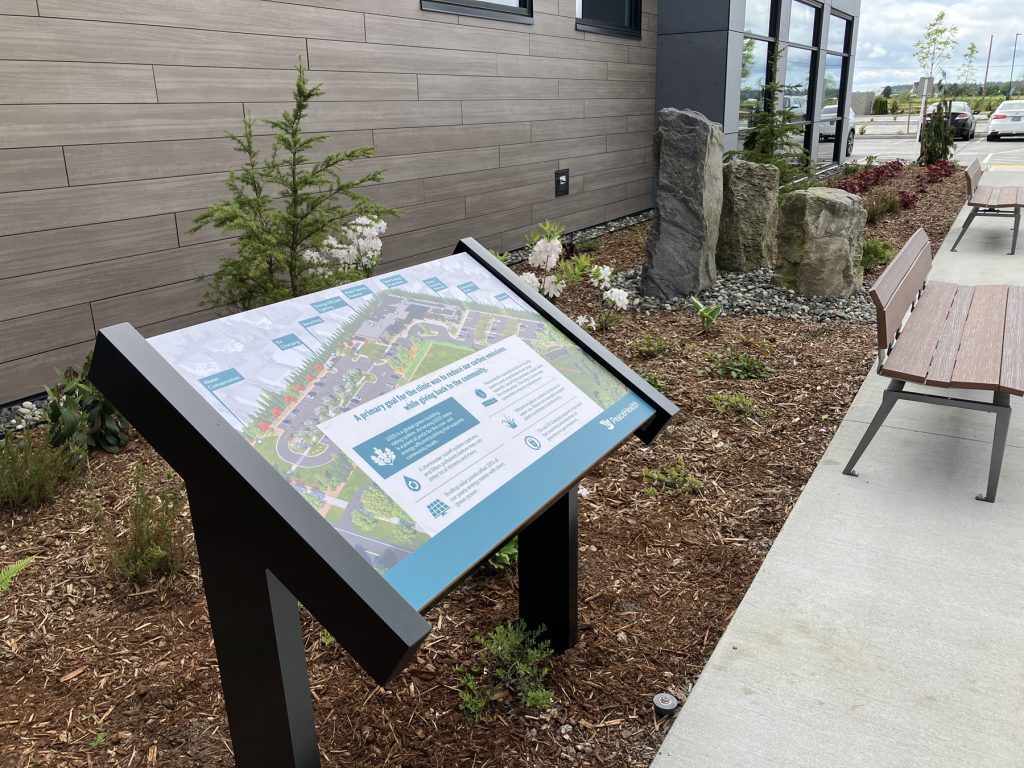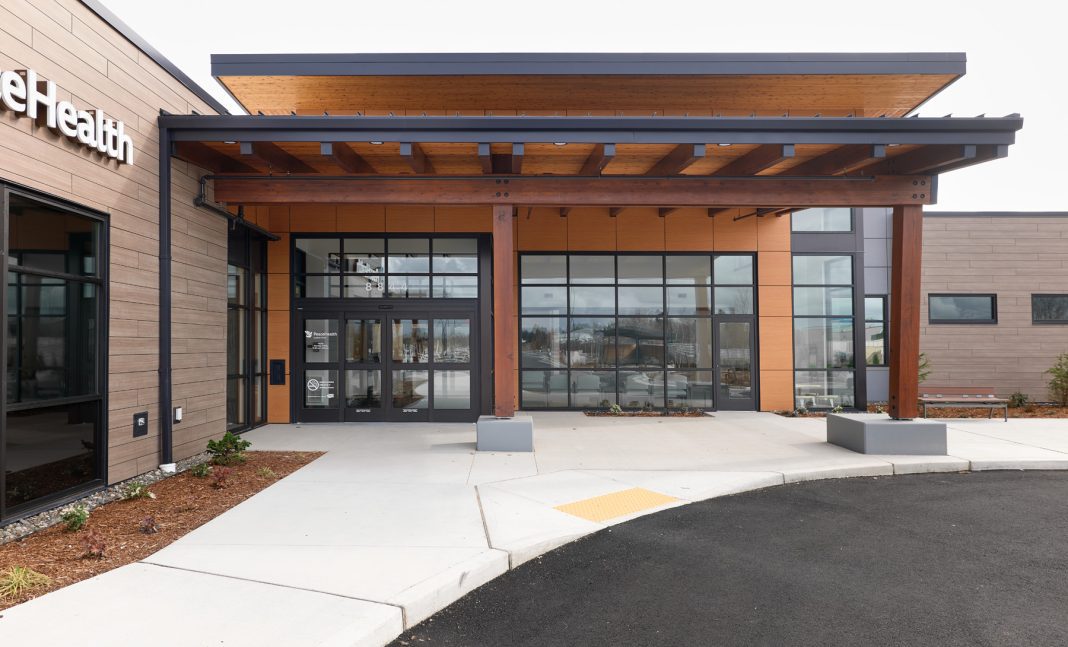Submitted by PeaceHealth
PeaceHealth, is demonstrating its commitment to environmental stewardship by advancing its efforts in systemwide sustainability practices.
As reported by Health Care Without Harm, the health care sector is a major producer of greenhouse gasses and wastes due to factors including natural gas and electricity, water usage, air conditioning, medical gasses, and the massive supply chain network underpinning patient care and operations. As a growing health system with 160 primary and specialty care clinics and nine medical centers serving both urban and rural communities, PeaceHealth recognizes its responsibility to strive for sustainable business practices.
“Health systems in the United States represent more than 8% of greenhouse gas emissions each year and have a unique imperative to pursue sustainability and reduce waste,” said Brian Nelson, PeaceHealth’s new program director of environmental stewardship. “Our sustainability work is an important component of PeaceHealth’s value of stewardship, which includes a commitment to reducing our impact on the environment while supporting community health.”
Nelson’s role expands upon his previous position overseeing sustainability efforts at PeaceHealth Southwest Medical Center in Vancouver, Washington, to now serve all PeaceHealth facilities. Nelson has helped implement many sustainability initiatives, including a tool to track the positive impacts of telehealth appointments, the first in the nation.
Between 2020 and 2023, PeaceHealth providers facilitated 447,364 telehealth appointments, eliminating transit consequences like pollution and fuel consumption. “We estimate that we avoided the emissions from driving 8.9 million miles and saved over 402,000 gallons of fuel by offering telehealth as an option for our communities,” Nelson said. “Using data like this helps to illustrate our environmental impact reductions, showing the connection between the care that we provide and its environmental impacts.”

Sustainability initiatives have been accelerating at PeaceHealth in recent years:
- PeaceHealth’s Northwest network recently opened its first LEED-certified clinic in Lynden, Washington. The Lynden Clinic was consciously designed to include local materials (rock, timber, doors), solar panels that produce clean, green power, and native and drought-resistant plants that contribute to biodiversity preservation.
- More than 70,000 pounds of blue wrap, a type of plastic material used to keep medical instruments sterilized, has been recycled since 2021.
- Desflurane, an anesthetic gas that is more than 2,500 times more harmful to the environment than carbon dioxide, was removed from PeaceHealth’s formulary in 2022.
- Recycling glass products from operating rooms, laboratories, and infant departments began in 2023, keeping 12,000 pounds of waste out of landfills.
- At PeaceHealth Southwest Medical Center in Vancouver, Washington, an animal feed program diverts 13 tons of food scraps from going to waste each year and more than 30 tons of food have been processed through an on-site food digester.
Nelson represents PeaceHealth in the national Practice Greenhealth organization, where PeaceHealth has been recognized as a Partner for Change for the past three years as recognition for its commitment to reducing environmental impacts. PeaceHealth Southwest was also honored by the Clark County Green Business group as the Large Green Business of the Year in 2022.
Nelson’s new role as director of environmental stewardship will enable him to develop these programs throughout the PeaceHealth system. Learn more about Nelson’s work through his PeaceHealth 2023 Mission & Values Award Overall Recipient video.








































